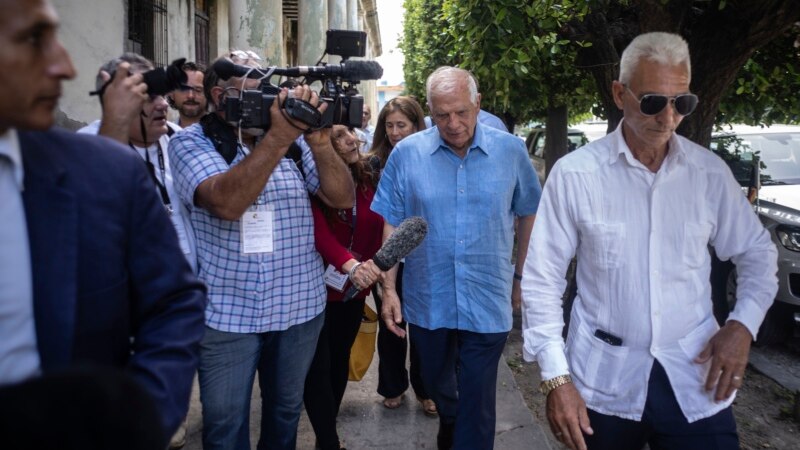
The European Parliament approved this Wednesday a resolution that denounces the deterioration of the human rights situation in Cuba and calls for sanctions against those responsible for “persistent violations”, starting with President Miguel Díaz-Canel.
Adopted with 359 votes in favor, 226 against and 50 abstentions, the document recalls that one of the clauses of the current bilateral cooperation agreement between the island and the European Union (EU) refers precisely to the conditions of human rights in the country caribbean.
The historic pact, signed in 2016, put an end to decades of “common position” by the bloc, which linked cooperation with Cuba to advances in the field of human rights.
The resolution approved by the MEPs affirmed that in the event of a violation of human rights, this agreement can be suspended, while insisting that the human rights crisis in Cuba must find “a proportional response from the Union and the Member States,” it warns a Press release.
The European Chamber also described as “a missed opportunity” the trip last May to Havana by the EU High Representative for the Common Foreign and Security Policy, Josep Borrell, whom they criticized for not meeting with members of independent civil society , political prisoners or their relatives.
In the document, the European Parliament demands the immediate and unconditional release of all those detained for exercising their human rights, “the withdrawal of abusive criminal charges” and also requests that the exiles be allowed to return.
Havana does not recognize that it has political prisoners in its jails, although organizations such as the NGO Prisoners Defenders, based in Spain, assure that until June some 1,047 remain in Cuban prisons.
The MEPs insisted that the Cuban authorities be given access to a delegation from the Parliament, the EU and the other member states of the bloc, as well as to independent human rights organizations in order to observe trials and see the conditions in which they live in prison ” hundreds of Cuban activists and individuals who continue to be detained for exercising their right to freedom of expression and assembly”.
The European Parliament also pointed out that the upcoming summit between the EU and the Community of Latin American and Caribbean States (CELAC) on July 17 and 18 will be an opportunity to present these concerns.
“In the opinion of the MEPs, autocratic regimes should not participate in these meetings between countries that share democratic values and respect human rights”, the press release refers to.
Cuban Foreign Minister denounces “lack of transparency”
Regarding the preparations for the meeting between the Latin American intergovernmental mechanism and the European blockade, Cuban Foreign Minister Bruno Rodríguez denounced this Monday that the “lack of transparency” and the “manipulative behavior” of the European Union could put “seriously risk the success” of the event.
Through a video on Twitter, Rodríguez rejected the imposition of “restrictive, divisive formats that make direct and transparent discussions impossible” and criticized the holding of a forum parallel to the summit and the way in which the EU chooses the Latin American representatives who will participate.
“The conduct of the European Union jeopardizes the possibility of reaching final agreements at the summit,” said the Cuban foreign minister.
Connect with the Voice of America! Subscribe to our channel Youtube and activate notifications, or follow us on social networks: Facebook, Twitter and instagram.












